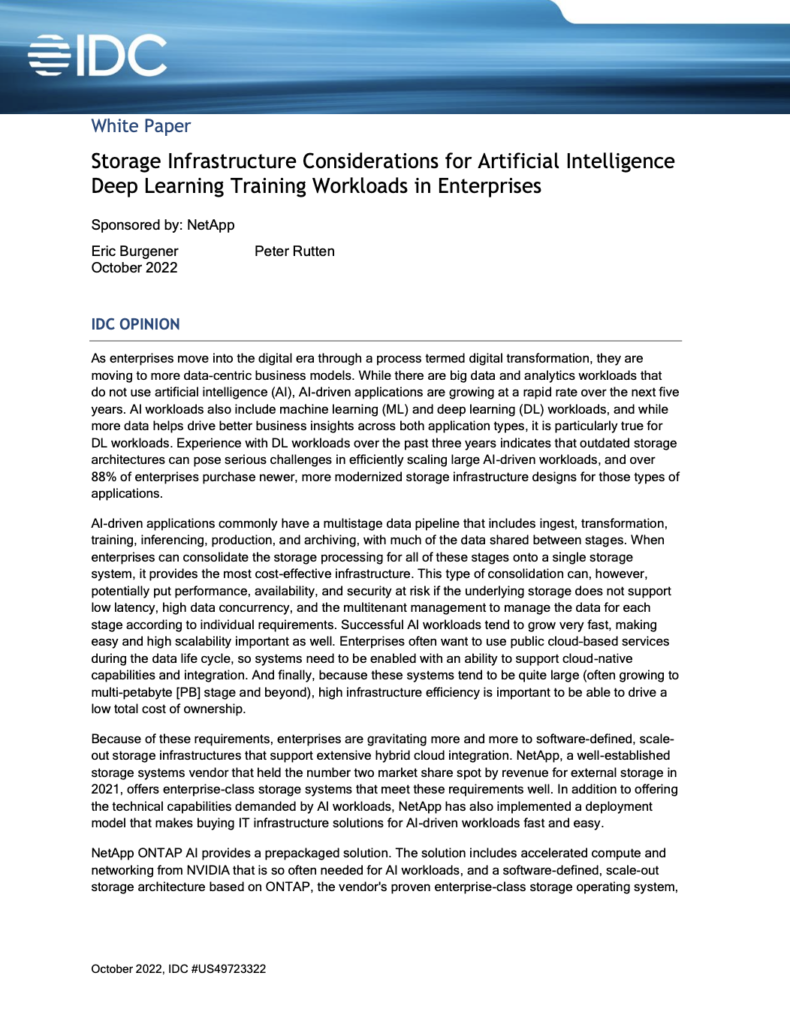
Storage Infrastructure Considerations for Artificial Intelligence Deep Learning Training Workloads

As enterprises move into the digital era through a process termed digital transformation, they are moving to more data-centric business models. While there are big data and analytics workloads that do not use artificial intelligence (AI), AI-driven applications are growing at a rapid rate over the next five years. AI workloads also include machine learning (ML) and deep learning (DL) workloads, and while more data helps drive better business insights across both application types, it is particularly true for DL workloads. Experience with DL workloads over the past three years indicates that outdated storage architectures can pose serious challenges in efficiently scaling large AI-driven workloads, and over 88% of enterprises purchase newer, more modernized storage infrastructure designs for those types of applications.